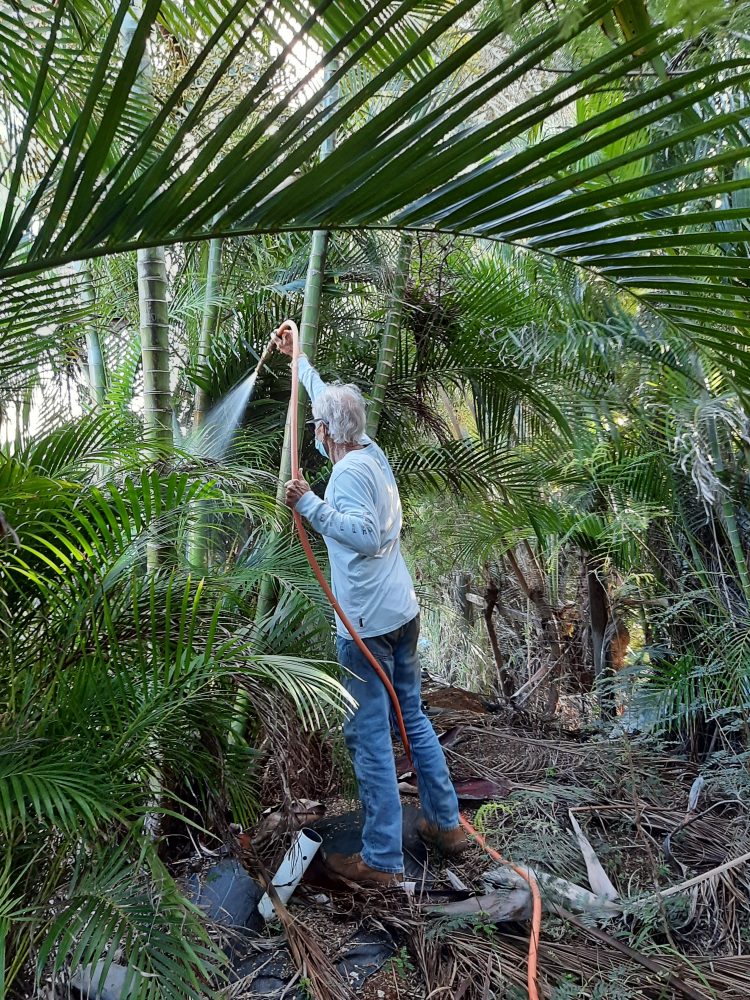
We hear you – and yes, we hear the coqui too!
The winter rains have started, and so has the chorus of coqui frogs. We understand that the coqui situation feels overwhelming right now, and we share your frustration. To everyone who has reached out—or better yet, is taking action—thank you. Your efforts are invaluable and make a real difference. At MISC, we remain dedicated to managing this growing challenge and want to update you on our efforts and how you can help.
As we shared in October 2024, we are short-staffed. Earlier this year, a funding gap temporarily prevented us from maintaining full staffing for our coqui crew. Staffing shortages are never ideal, but the timing of this one—during warm, wet weather when coqui are most active—has been especially frustrating.
While this setback slowed our progress, we’re rebuilding capacity and look forward to having a fully staffed and trained team soon. If you know trustworthy and hardworking candidates, please send them our way!
Even when our coqui crew is fully staffed, success depends on collective kuleana: communities working in their yards so MISC can focus on outliers and containment.
Neighborhoods that work together have been successful in bringing the situation under control. For example, Haʻikū Mauka has quieted coqui populations by reducing habitat and taking action themselves, such as spraying citric acid. Other neighborhoods following this model are seeing progress—some only encounter a coqui every few months.

Community Coqui Control
Make Your Yard Unfriendly to Coqui:
- Trim vegetation and dispose of green waste at official facilities.
- Remove dense brush and coqui-friendly plants like bromeliads where coqui thrive.
DIY Frog Control:
- Only hearing a few frogs? Hand capture or use a spray bottle with citric acid solution. Request some citric from MISC.
- Need something more? Use a backpack sprayer. Request a Backpack Sprayer
- Need citric acid? Request some from MISC.
- Learn from the pros. Watch our short coqui-catching video.
Organize with Your Neighbors:
- Many hands make light work! Help your neighbors make their yard unfriendly to coqui and spay citric acid.
- Consider hosting a supply distribution point for your community.
What MISC is Doing:
Community support:
- Distributing citric acid for coqui control: Request some from MISC.
- Loaning equipment like pickup sprayers and delivering citric acid for frog control. Request a Truckbed Sprayer
- Adding a limited number of 4-gallon backpack sprayers to the equipment available for loan: Request a Backpack Sprayer
- Staffing Up: We’re hiring field crew and crew leaders. Learn more about Careers.
- Workshops: Upcoming workshops will teach strategies to reduce coqui impacts and organize neighborhood control efforts.
Looking Ahead:
Coqui are primarily limited to a six-square mile area of Haʻikū and we are not giving up. Our goal is to empower communities to manage coqui locally and prevent new populations from spreading.
With your support, we can make a difference. Mahalo nui loa for your kōkua and patience as we navigate these challenges. Together, we can continue protecting Maui from invasive species.


Maui is 735 square miles; coqui are established in various densities across roughly six square miles. Current staffing requires us to prioritize response to coqui detections in the blue area.
